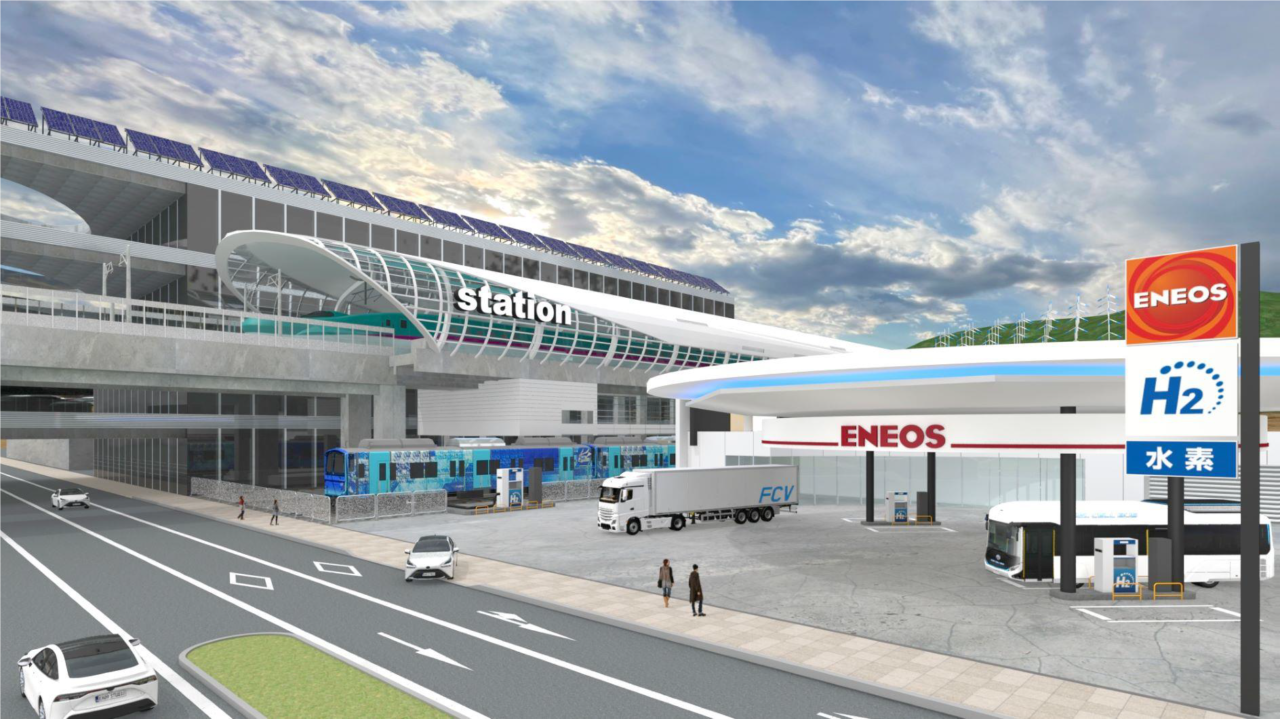All aboard Japanese joint study of hydrogen-hybrid trains
ENEOS has signed a partnership agreement with the East Japan Railway Company (JR East), agreeing to jointly study the expansion of a CO2-free hydrogen utilisation for the decarbonisation of railways.
The two companies will collaborate to develop Japan’s first hydrogen-hybrid trains and stationary hydrogen stations for these trains, aiming for social implementation by 2030. The facilities are expected to be integrated hydrogen stations that will supply CO2-free hydrogen to various fuel cell (FC) mobility vehicles (fuel cell vehicles, buses, trucks, etc.) including hydrogen-hybrid trains, as well as to facilities around train stations.

The two companies will also jointly work on decarbonising the electricity supply to railways centred around the Tokyo metropolitan area. Specifically, they will consider supplying CO2-free hydrogen from ENEOS’s CO2-free hydrogen supply base in the Keihin Waterfront Area to JR East’s Kawasaki Thermal Power Station for hydrogen co-firing power generation. Through this, the two companies aim to supply power generated from the hydrogen co-firing power generation to railways by the early 2030s. The two companies will contribute toward achieving a decarbonised society by leveraging their expertise accumulated in the railway and energy businesses to lead the creation of a CO2-free hydrogen supply chain that encompasses CO2-free hydrogen production, transportation, and consumption.